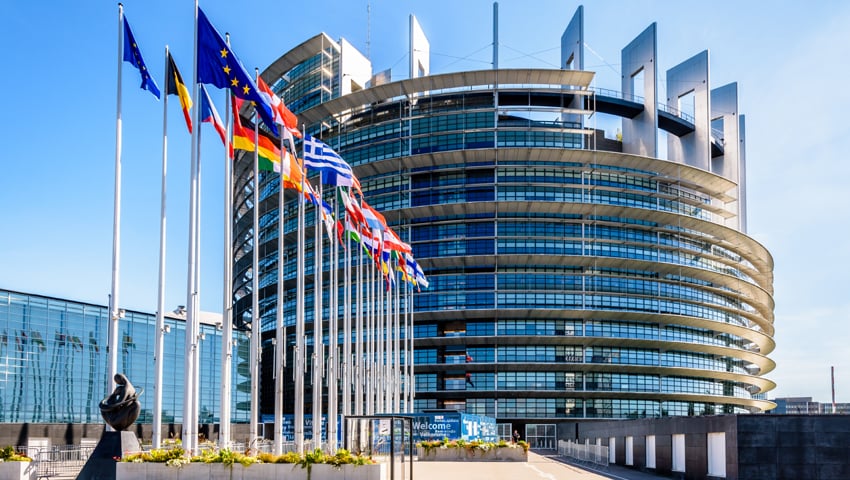The European Parliament this week rejected a Commission proposal on sustainable use of plant protection products. Following a debate on Tuesday 21 November, 299 MEPs voted on Wednesday to reject the Commission’s proposal as amended by MEPs in plenary, with 207 supporting the proposal and 121 abstaining.
With this vote, Parliament has effectively rejected the Commission proposal and closed its first reading. The Council still has to decide on its own position on the proposal to determine whether it is definitively rejected or returns to Parliament for a second reading.
As part of the European Green Deal, the Commission had proposed on 22 June 2022 a regulation on the sustainable use of plant protection products as part of a package of measures aiming at reducing the environmental footprint of the EU’s food system.
Statement from Birdlife International
This week, Members of the European Parliament rejected the Sustainable Use of Pesticide Regulation (SUR). Despairingly, MEPs fell for the misleading and deceptive information spewed out through a massive lobbying campaign from pesticide corporations.
This piece of legislation, which is an essential part of the European Green Deal and the Farm to Fork strategy, was supposed to tackle the biodiversity crisis by halving pesticide use by 2030. Instead, a majority of Members of the European Parliament voted to reject the proposal and will continue to poison citizens and nature.
The rejection of the law, orchestrated by conservative parties and supported by the far right, and many liberals, is a nail in the coffin of attempts to restore our relationship with nature and be able to produce food in the long run. By supporting the position of powerful agriculture lobby groups, MEPs who are supposed to represent EU citizens, did the exact opposite. They ignored the demands of over 1 million worried citizens.
Marilda Dhaskali, Agriculture Policy Officer at BirdLife Europe, said, “EU politicians have chosen a path that promises a grim and challenging future for both us and our children. Supporting a farming system that contaminates our environment with toxic compounds, jeopardizing our health, is an unsustainable choice. Despite the clear detriment to citizens, and all the science calling for a pesticide free Europe, our representatives have opted to uphold this disastrous system.”
In January or February 2024, Member States are expected to take a “general approach” to the law. The Parliament will have to vote on the Council’s position. However, the proposal of the Commission has been met by much apprehension by the Council and negotiations are challenging.
Statement from Corporate European Observatory
CEO says they have “exposed the irresponsible lobby attacks on the pesticide reduction target since the beginning: from misleading ‘impact studies’ leading creating delay, to attempts to water down the law in every way possible.
“The SUR was one key law that was highly needed to save ecosystems that our food security and indeed survival is dependent on. 6.000 scientists expressed their support for both the pesticide reduction law and the Nature Restoration Law as essential for food security in the long term.
“This move was preceded by a thorough watering down of the law, which was celebrated by EPP MEPs like Peter Liese. The Conservative group was aided by numerous members of the Liberals (Renew). Rapporteur Sarah Wiener, who had made a brave attempt to save this law, testified after the vote how she was threatened and intimidated while negotiating.”
Nina Holland, researcher at CEO, said, “This is a very dark day. A majority of MEPs today have bought into a years-long, misleading campaign set up by the pesticide industry, notably Croplife Europe with its members Bayer, BASF, Syngenta and Corteva. These people are not serving the common interest of people and the environment in Europe.
“The industry lobby campaign and its political allies against the pesticide reduction law is as irresponsible as manufacturing doubt on tobacco smoke. Our health and our future, that relies on intact ecosystems, are more important than the profits of these 4 companies.”
